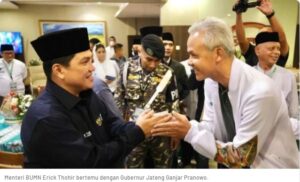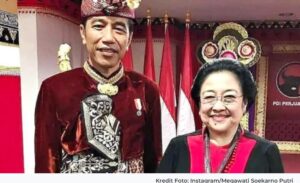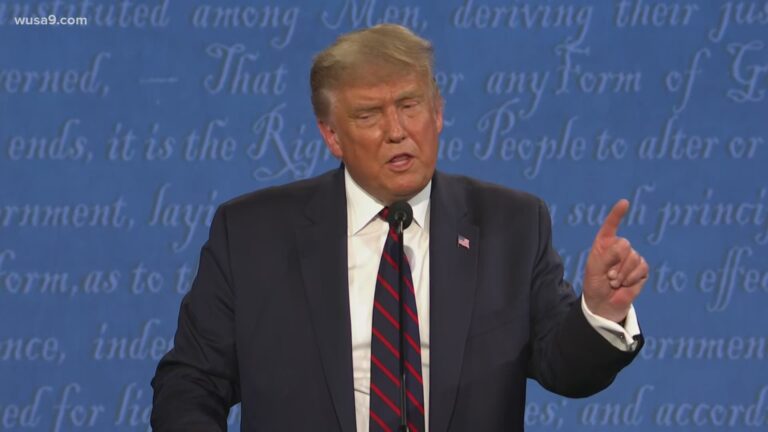STRATEGIC ASSESSMENT. Indonesian Defense Minister Prabowo Subianto appears increasingly likely to make the improbable journey from onetime human rights violator, fired general, and thrice-failed contender to the strongest candidate for the country’s presidency in 2024, apparently with the behind-the-scenes backing of President Joko Widodo.

As political parties fall in line, many suspect it is the result of the president’s involvement, at the end of May stating bluntly that he would intervene in the 2024 general election in order to secure the continuation of his programs. Ganjar Pranowo, the Central Java governor once regarded as the frontrunner who infuriated the president when he blocked an international football tourney in Bali, has seen his support fade, now only coming from the once-dominant Indonesian Democratic Party of Struggle, or PDIP, and a small party PPP.
According to the most recent Kompas poll, Ganjar Pranowo has a 24.9 percent electability rating, Prabowo Subianto 24.6 percent, and Anies Baswedan 12.7 percent. The survey was conducted face-to-face on July 27 to Aug. 7, with 1,364 respondents from 38 provinces and 331 villages/sub-districts in Indonesia, with a margin of error of plus or minus 2.65 percent. Ganjar’s rating has increased this time after falling to 22.8 percent in May 2023. His electability is now close to the 25.3 percent threshold for January 2023. Ganjar is now 0.3 percent ahead of Prabowo, after trailing him by 1.7 percent in May 2023.

Gibran Rakabuming Raka, the eldest son of President Joko “Jokowi” Widodo, appears to be gaining nationwide attention as a potential candidate for vice president as parties hint at possibly putting him on a list ahead of a Constitutional Court ruling on the age of candidacy. The possibility of the 35-year-old Surakarta mayor joining next year’s presidential election has recently gained traction among both political parties and the public as the court reviews the General Elections Law over whether or not to lower the minimum age requirements for candidates from 40 to 35.
To his detractors, President Joko “Jokowi” Widodo is a “man of contradictions”, which is what political analyst Benjamin Bland has called the country’s seventh president. The most recent example of this was when Jokowi delivered the State of the Nation Sddress last Wednesday, during which he teased political parties seeking his direction ahead of next year’s elections, especially when it came to choosing which presidential candidates to support. On a previous occasion, he defended his move to cawe-cawe (intervene) in the political parties’ hunt for his successor, which he claimed was for the good of the country. Notwithstanding the controversy, we can hardly doubt President Jokowi’s commitment to transforming Indonesia into a global player, which requires its joining the ranks of the world’s biggest economies. His focus on infrastructure and now, the country’s mineral downstream industry, stand testament to his intention to realize his dream. After nine years in office, he seems to have been consistent in this regard.

State-owned Enterprises (SOEs) Minister Erick Thohir is on the exchange for the vice-presidential candidate to accompany Ganjar Pranowo and Prabowo Subianto. Erick’s name is also a strong favorite candidate for vice president based on several credible survey institutions. Denny J.A. Lingkaran Survei Indonesia (LSI) researcher Adjie Alfaraby said that Erick’s position would be strengthened by President Jokowi’s decision. Apart from the fact that the Indonesian Democratic Party of Struggle (PDI-P) is still considering Erick’s position, the SOEs minister is still waiting for the approval of the Greater Indonesia Awakening Coalition (KKIR) to become Prabowo’s running mate.
The Indonesian Democratic Party of Struggle (PDI-P) has appeared to be distancing itself from President Jokowi and his policies in recent weeks, giving weight to speculation that the ruling party is preparing to enter the 2024 general election without the support of a “party official” whose allegiance it continues to question. PDI-P chairwoman Megawati Soekarnoputri suggested at a book event that the Corruption Eradication Commission (KPK) would be better off disbanded because of its perceived ineffectiveness. “I’ve told Pak Jokowi several times now, ‘Just shut down the KPK, it no longer works,’” she said in a speech in Jakarta, according to local reports. Megawati’s remarks come about a week after PDI-P secretary general Hasto Kristiyanto publicly derided Jokowi’s food estate megaproject, which he said was marred with “conflicts of interest” because of the involvement of PT Agro Industry Nasional, a firm owned by a nonprofit foundation operated by the Defense Ministry and with close connections to the Gerindra Party.
University of Indonesia’s Student Executive Body (BEM UI) decided to schedule a political debate involving Anies Baswedan, Ganjar Pranowo, and Prabowo Subianto on September 14. BEM UI Chair Melki Sedek Huang on Wednesday said the three potential presidential candidates had expressed their willingness to participate in the debate on campus ahead of the 2024 presidential election. Melki said BEM UI expected dialogues and two-way communication between the figures, as it is called a debate, rather than a public lecture. Meanwhile, Anies Baswedan accepted the challenge, claiming that he is ready to receive the invitation.
According to, Dr. Iim Halimatusa’diyah, Visiting Fellow in the Regional Social and Cultural Studies Programme ISEAS – Yusof Ishak Institute, Senior Lecturer at Islamic State University (UIN) Syarif Hidayatullah, and Deputy Director for Research at the Center for the Study of Islam and Society (PPIM) UIN Jakarta, Indonesian leaders have committed to refrain from politicising religion in the upcoming February 2024 elections, but political incentives and social forces continue to propagate identity politics, especially among the youth. More must be done to curb the politicisation of religion and educate the youth about its harmful consequences. The politicisation of religious identity will remain a key challenge for Indonesia in the upcoming February 2024 presidential election. Some national political figures have expressed their commitment to refrain from politicising religion. However, since religion remains embedded in voters’ attitudes and behaviour, including young voters (below age 40) who comprise around 60 per cent of the electorate, politicians are unlikely to completely discount its utility.
The 2024 presidential race is shaping up to be a battle of two powerful kingmakers, with President Jokowi reportedly working behind the scenes to prop up the presidential bid of his former electoral rival, Prabowo Subianto, to the chagrin of his putative boss, Indonesian Democratic Party of Struggle (PDI-P) Chair Megawati Soekarnoputri, who is backing Ganjar Pranowo for the nation’s top job. The long-standing conflict between the two political big-wigs, which goes back to the early days of Jokowi’s presidency, is looming large over the upcoming election and is believed to have informed political party alliance-building, especially after pollsters predicted that Prabowo and Ganjar would face off in a runoff election.

President Joko “Jokowi” Widodo and Megawati Sukarnoputri, the chair of the Indonesian Democratic Party of Struggle (PDI-P), the largest party in the coalition government, have sharp and probably irreconcilable differences in their approaches to the 2024 presidential race. Jokowi, a member of the PDI-P, appears to be supporting Defense Minister Prabowo Subianto of Gerindra, another coalition member party. Meanwhile, Megawati has named Central Java Governor Ganjar Pranowo as the PDI-P candidate. While the two have significant differences of opinion on how the country should be run, these were mostly kept out of the public eye. Jokowi often consulted Megawati as the party chair who gave him the presidential ticket in 2014 and 2019. With the elections six months away, cracks have emerged in this partnership, and they could widen unless the two reconcile their differences.






